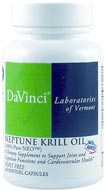The Oils That Fuel Your Fat Burning Furnace
 Fat Fat Fat Fat. Fat is the enemy. Fat causes heart disease. Fat clogs your arteries. Fat makes you fat. These statements are what most people believe about fat. What many people do not realize is that not all fats are the same. There are “bad fats” and “good fats”. Bad fats can make you fat, increase your risk of heart disease, negatively affect your cholesterol, and increase inflammation in your body. Examples of bad fats are fried foods, hydrogenated oils, and trans-fatty acids like those found in Margarine and “I Can’t Believe Its Not Butter”. Good fats in contrast, burn fat, decrease the risk of heart disease, act as blood thinners, and improve your cholesterol profile.
Fat Fat Fat Fat. Fat is the enemy. Fat causes heart disease. Fat clogs your arteries. Fat makes you fat. These statements are what most people believe about fat. What many people do not realize is that not all fats are the same. There are “bad fats” and “good fats”. Bad fats can make you fat, increase your risk of heart disease, negatively affect your cholesterol, and increase inflammation in your body. Examples of bad fats are fried foods, hydrogenated oils, and trans-fatty acids like those found in Margarine and “I Can’t Believe Its Not Butter”. Good fats in contrast, burn fat, decrease the risk of heart disease, act as blood thinners, and improve your cholesterol profile.
There is a misconception that when you consume fat, it is automatically stored in your body as fat. This is not true. Our bodies use two main sources of energy, Fat and Carbohydrates. When we eat carbohydrates the body converts it into sugar to burn for energy and then converts the excess into fat to be stored. Likewise, when we consume fat, the body burns what it needs and the excess is then stored. Fat is stored in tissue made up of adipose cells. These adipose cells are located just underneath our skin and as they are filled we become visibly fatter. Luckily for us, there are oils that have properties that help us to release this stored fat and burn it for energy, helping us become leaner.
The Fats That Burn Fat Off Your Body
1. Fish Oil
contains the omega-3 essential fatty acids EPA (eicosapentaenoic acid) and DHA (docosahexaenoic acid). They are the most potent omega-3s available and have a myriad of health benefits:
- Fat Burning
- Decrease Inflammation
- decrease insulin resistance
- decrease triglycerides,
- decrease blood pressure and heart rate,
- decrease risk of embolism/stroke. EPA/DHA can be used as a blood thinner.
- decrease symptoms of Rheumatoid Arthritis and Chorn’s disease. Research shows that patients who supplement with fish oil greatly decrease their dependence on steroid medications.
- improves mood disorders like mild-moderate depression
- improves congnitive development in infants and is associated with higher IQ scores
- decreases allergies in children- when taken by the mother during pregnancy and when breast feeding and directly by the child thereafter.
2. Krill Oil
Krill are small crustaceans. They are a source of food for salmon and flamingos. They are what give these animals their pinkish color. Like fish oil, krill oil contains EPA and DHA so it has all the benefits of Fish Oil including fat-burning with the following additional benefits:
It has 40x the antioxidant power of fish oil due to its astaxanthin content. Astaxanthin is both a powerful anti-oxidant and powerful anti-inflammatory. It is one of the few antioxidants that can cross both the blood-brain barrier and the blood-retinal barrier to protect the brain and eyes from oxidative damage.
It also contains two other anti-oxidants Vitamin E and Vitamin A which further helps to protect against cancer. A.
One of the side effects of fish oil is regurgitation. The different digestion mechanism of phospholipids in krill oil prevents any regurgitation side-effects usually experienced when consuming fish oil.
Because Krill oil is much more potent than fish oil, it is not necessary to consume nearly as much to get the same effect. Krill oil pills are ⅓ the size of fish oil pills.
Dr Oz. featured krill oil on his show, and brillantly uses simple illustrations to show how krill oil is superior to fish oil . Click here to watch his krill oil segment.
3. Coconut Oil
- Coconut oil contains medium chain triglycerides (MCTs). MCTs can up-regulate a sluggish thyroid gland, thereby raising your metabolism and increasing your fat burning levels throughout the day.
- MCTs are immediately converted to energy by the liver instead of being stored as fat.
- Coconut oil improves your cholesterol profile by decreasing LDL (“bad cholesterol) and increasing HDL (“good cholesterol”) levels
- Coconut Oil contains lauric acid, which the body converts to monolaurin to kill HIV, Herpes, and Measles viruses.
- Coconut oil can also be used as an anti-fungal/yeast agent.
- Coconut oil must be organic and either cold pressed or extra virgin to get maximal benefits.
4. Flax Seed Oil
- Contains the omega-3 essential fatty acid, alpa linolenic acid. Alpha linolenic acid increases thermogenisis (aka fat burining in the body).
- Flax seed oil also induces a feeling of satiety or fullness, so it can be used as an apetite suppressant to prevent overeating..
5. Other oils that help you burn fat
- Olive oil- should not be used for cooking, because it has a low burn point and will make it unhealthy for you. It is best used for salads or added to food after cooking.
- Nut oils including walnut oil and almond oil
Beware This Recommendation! The American Heart Assocition (AHA) recommends that we include vegetable oils in our diets, because studies show that they are associated with a decrease mortality from heart disease. Studies do show that they in fact decrease the risk of dying from heart disease. What they do not tell you, is that long term studies of vegetable oil consumption over 5 to 8 years revealed increased incidence and death due to cancer. This is no surprise. Vegetable oils are easily oxidized when they are used for cooking purposes. Oxidized molecules are what we call free radicals. When we consume these free radicals, they damage the DNA in our cells, which results in an increased risk of developing cancer. So, why is the AHA promoting vegetable oil as a way to reduce heart disease, when there are other types of oils that do the same thing without the increased cancer risk? I believe the AHA should rethink their recommendation.
Related Products:
